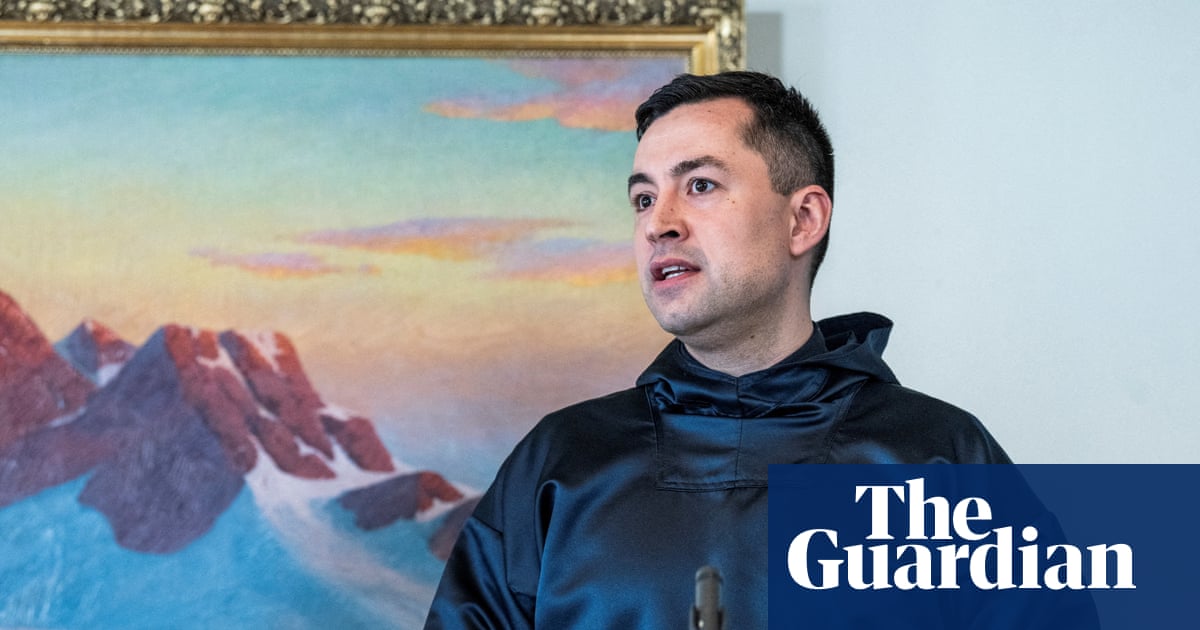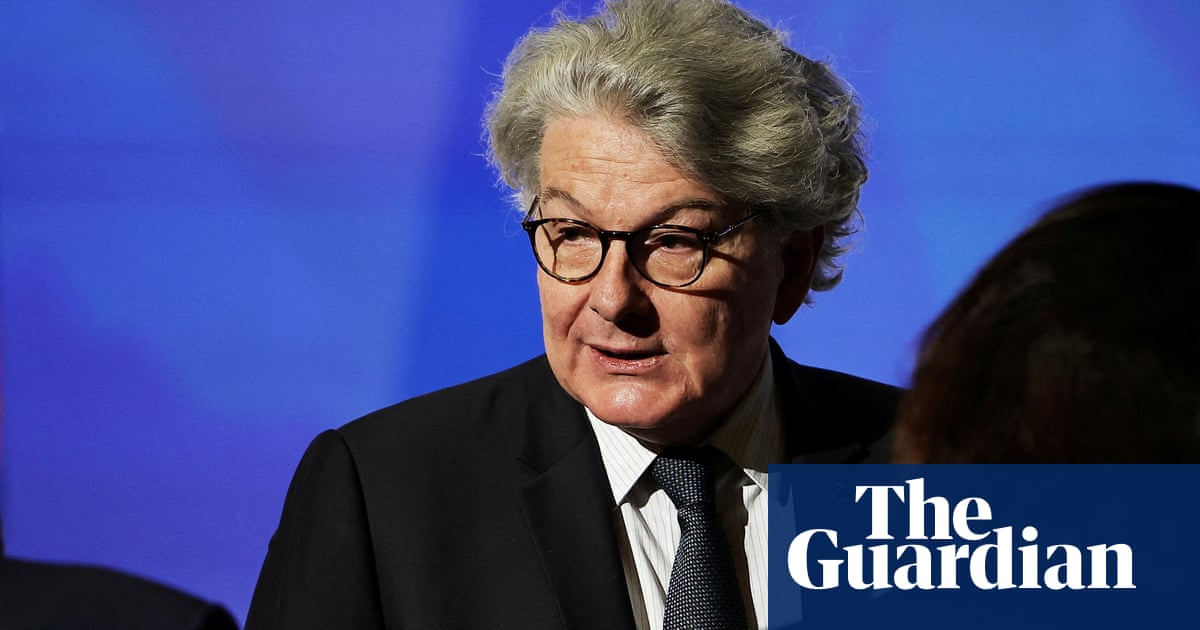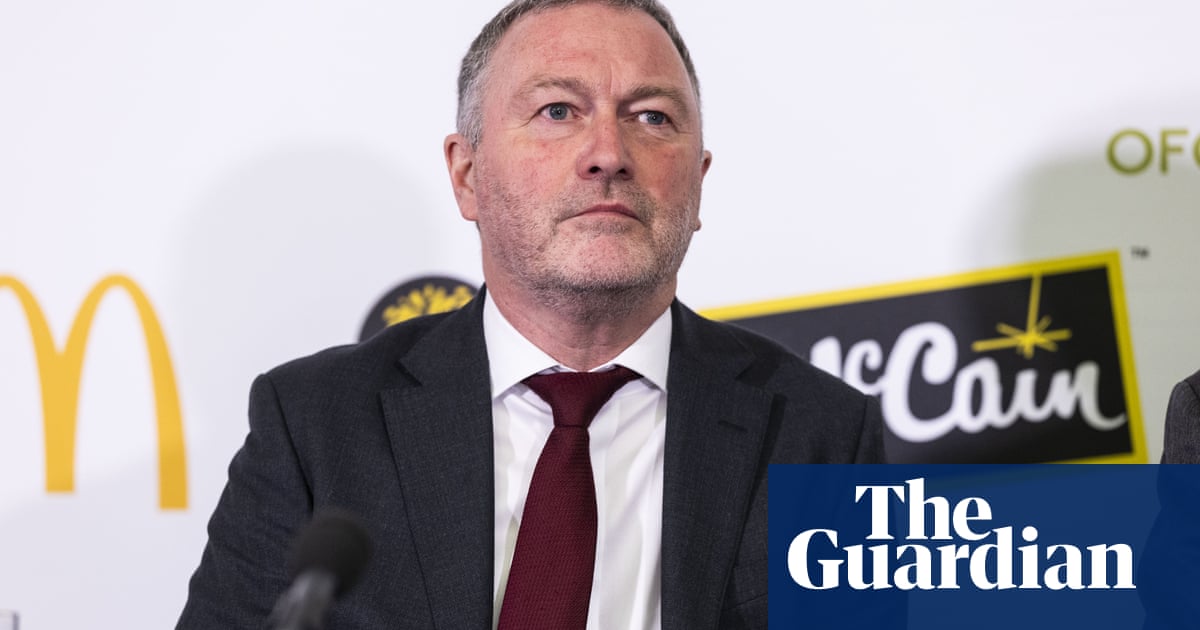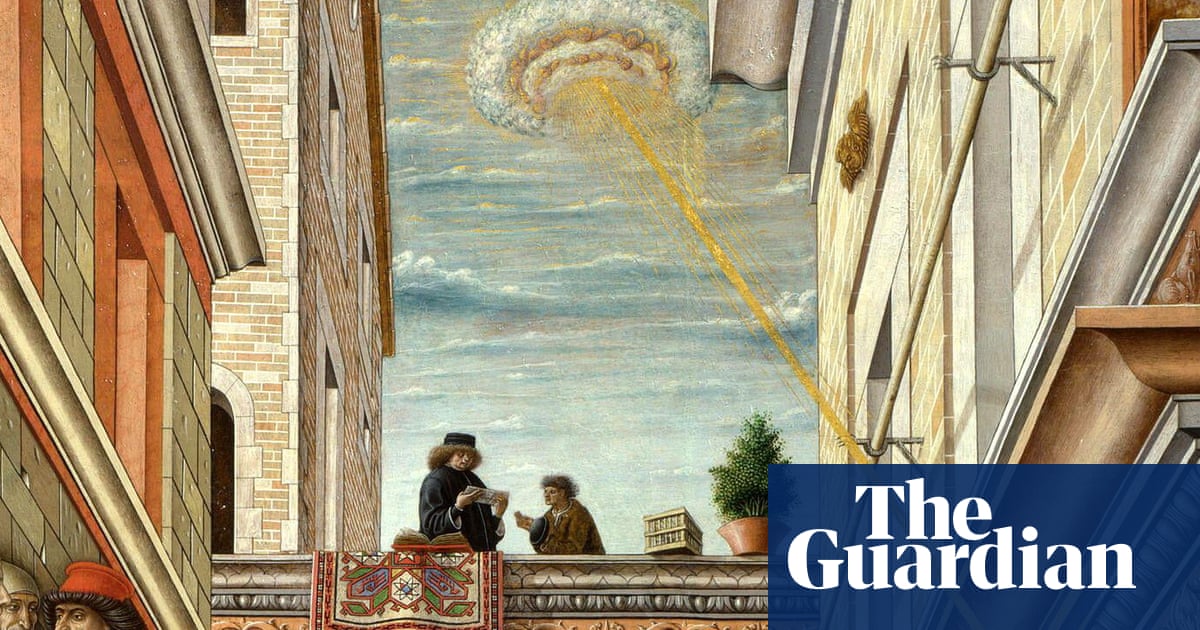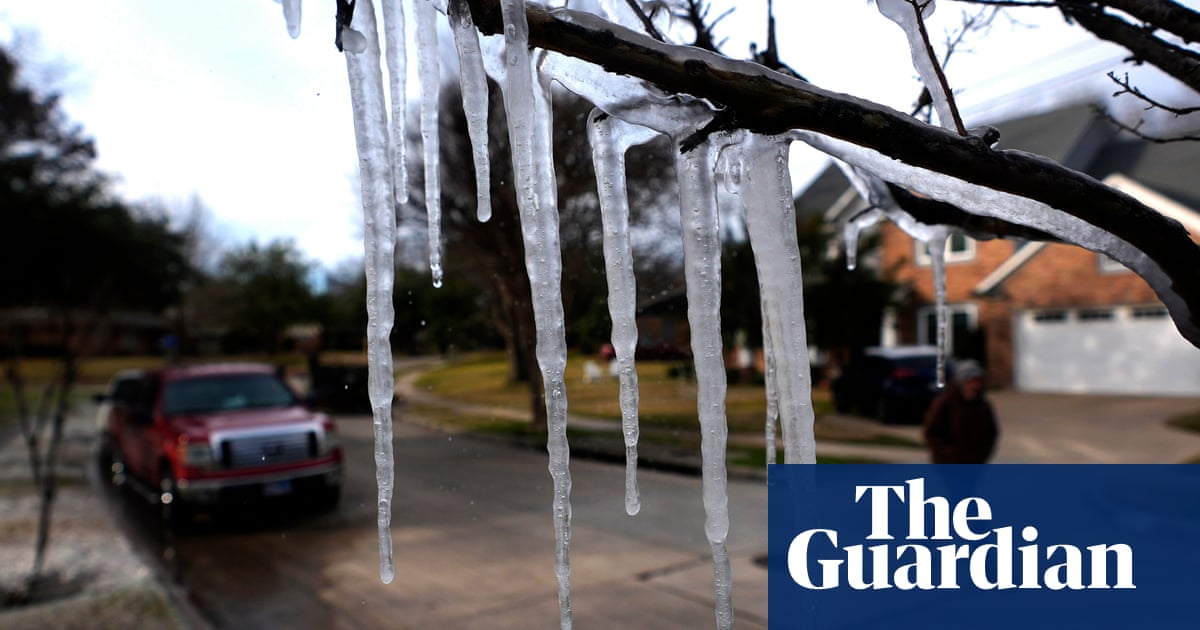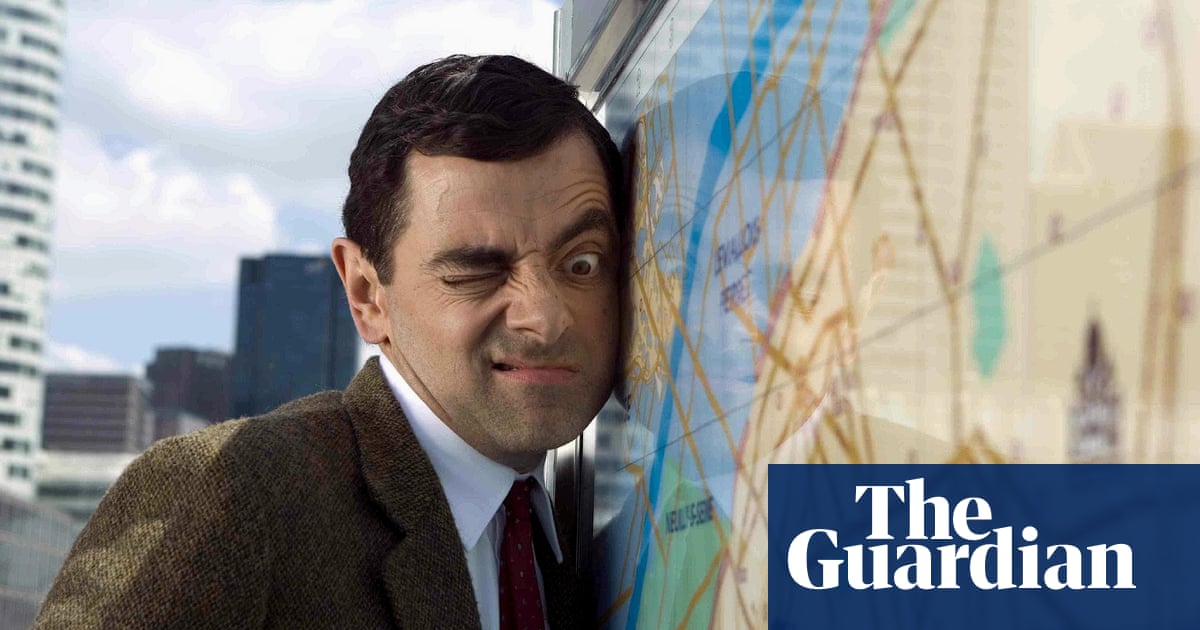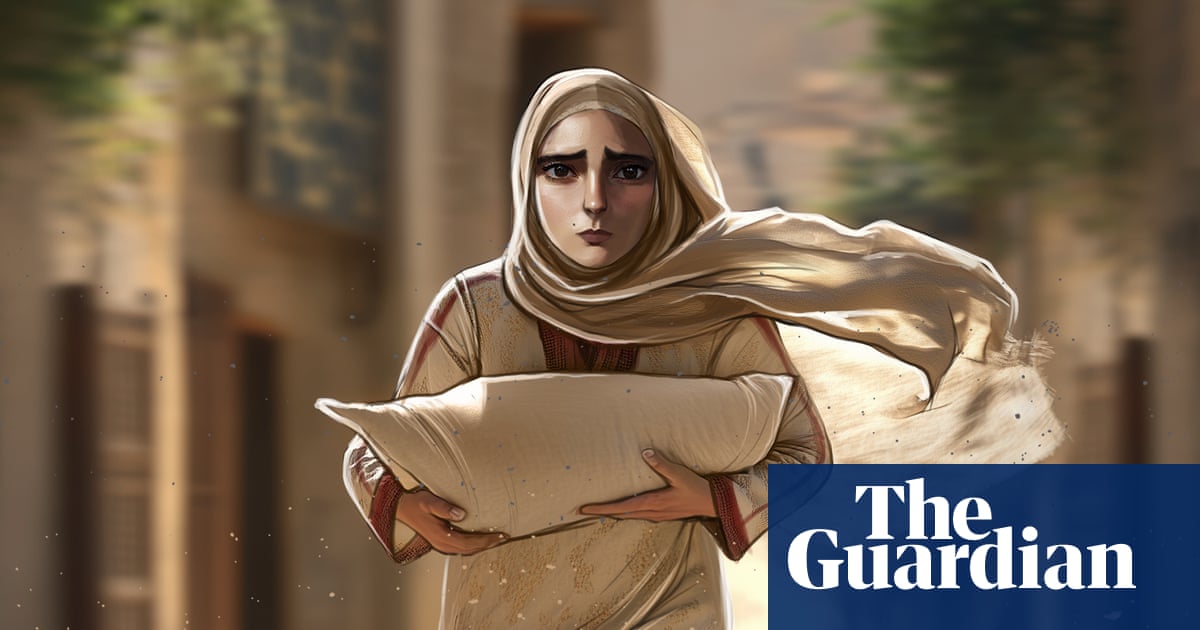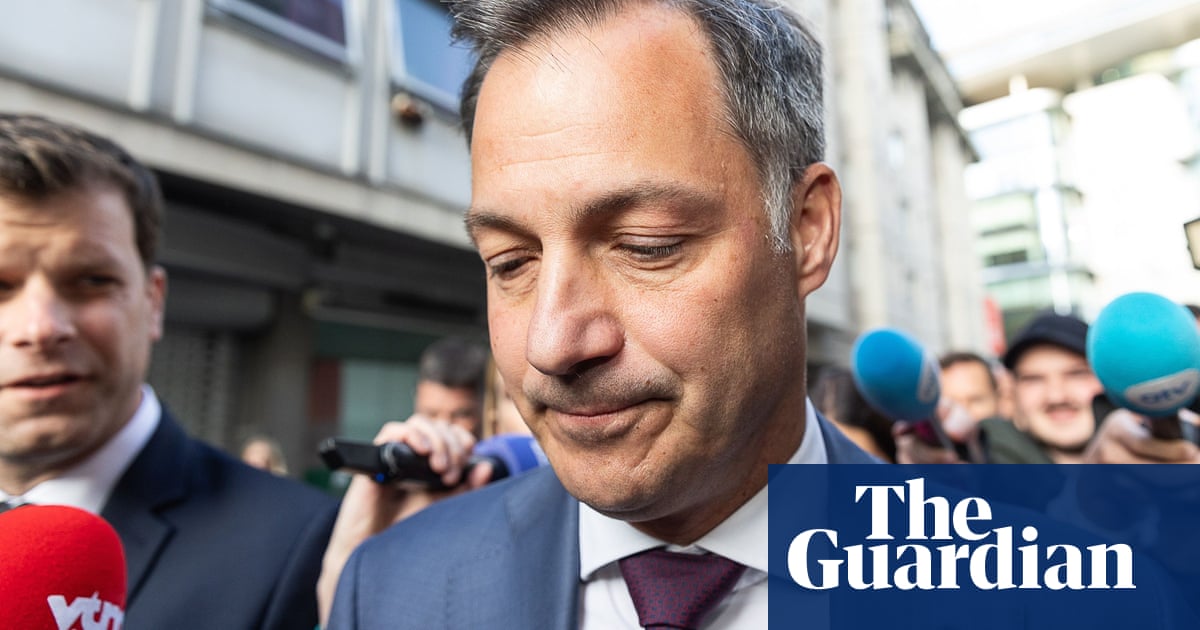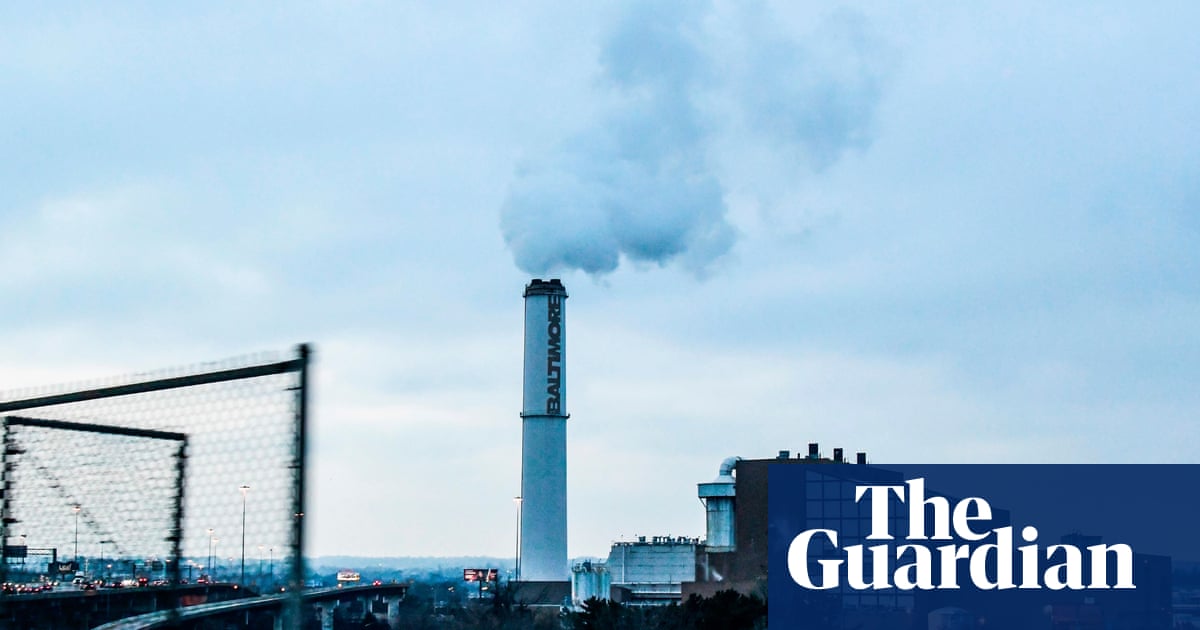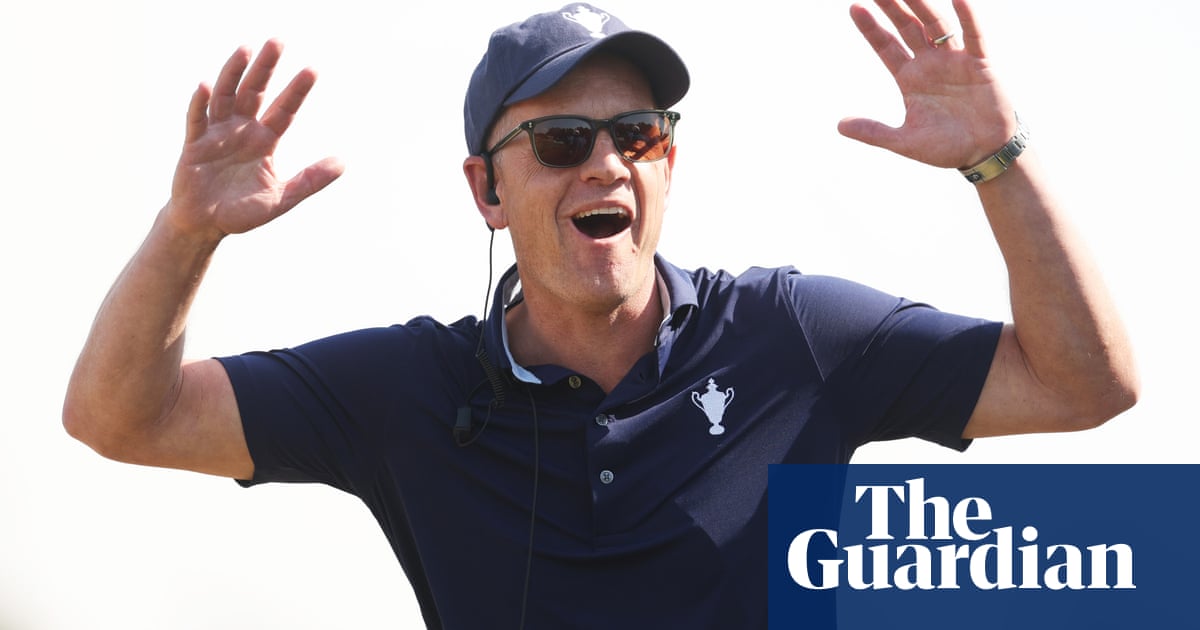Noon, 8 September 2021. Central Paris, Île de la Cité. The trial that gets under way today will not be the Nuremberg of terrorism, as some have said: whereas high Nazi dignitaries were put on trial in Nuremberg, here the defendants are second stringers, since those who did the killing are dead. Nevertheless, this trial too will be enormous, unprecedented, something I want to witness. Without being a specialist in Islam – let alone in Arab studies – I am interested in religions, their pathological mutations and the question: where does this pathology begin? When it comes to God, where does the madness start? What goes on in these guys’ minds? But the main reason I want to spend a year attending this trial is that hundreds of human beings will describe the experience of having lived through the night of 13 November 2015, when Islamic State fighters killed 130 people at the Stade de France, the Bataclan and on the cafe terraces in eastern Paris and wounded hundreds more. Those who survived the attack or survived their loved ones, will stand before us and speak. Day in, day out, we will hear extreme experiences of death and life, and I think that between the time we first enter this courtroom and when we leave it for good, something in all of us will have shifted ground. We don’t know what we’re waiting for; we don’t know what will happen. We go in.
At 12.25pm a tremor runs through the courtroom. Heavily escorted by gendarmes, the accused enter the bulletproof box. Most of what we see is the reflection in the glass, and not the defendants behind it. We stand up, crane our necks, and wonder: is he there? Yes, he is. Salah Abdeslam is there. He’s the one in the black polo shirt, the furthest from us, the only surviving member of the group of fighters. If he’s at the back of the box it’s not to prevent us from seeing him but because they’re seated in alphabetical order. He’s the first in a long series of A’s: Abdeslam, Abrini, Amri, Attou, Ayari. A bell rings shrilly and a voice says: “All rise.” Everyone stands, as if at mass. The presiding judge and the four assistant judges come in and take their seats. With a hint of a Marseille accent, the presiding judge says: “Please be seated, the court is now in session.” It’s begun.
Abdeslam is the star of the trial. Born and raised in Molenbeek, a district of Brussels reputed to be a haven for radicalised Muslims, he is the younger brother of Brahim Abdeslam, who blew himself up at the brasserie Le Comptoir Voltaire. Salah was supposed to blow himself up as well, and it’s unclear whether his explosive belt didn’t go off or if he thought better of it at the last minute. Only he can say. Will he?

During the six years that the investigation has been under way, Abdeslam has refused to utter so much as a word, and the question on everyone’s lips on the first day of the trial is: will he persist in his silence? If so, the trial will lose its fascination. We lay odds; most of my colleagues on the press bench are pessimistic. The roll call starts with him, respecting alphabetical order. The presiding judge asks him to stand and state his civil status. Will he stand? Will he answer? He stands up. A youthful figure, his face is largely covered by his Covid mask and the Salafist beard under it. Before any questions can be asked he recites in a loud voice the shahada, the grand, sober Islamic creed: “There is no God but Allah, and Muhammad is his messenger.” A moment goes by. “Well,” says the presiding judge, “we’ll see about that in due course. The names of your father and mother?” “My father’s and mother’s names are no business of this court.” “Profession?” “Islamic State fighter.” The judge looks at his notes and says placidly: “It says here: temporary worker.”
On the second day, while the plaintiffs were still coming forward, it was announced that the victims’ testimonies would soon be heard. Suddenly, Abdeslam stood up in the box, made signs until his microphone was turned on, and asked if we would also be hearing from those who had been bombed in Syria and Iraq. That would be discussed in due course, the presiding judge responded, and switched off his microphone.
In general, the comment was seen as a provocation. Still, it left me thinking. It invokes the so-called “defence of rupture”, introduced in 1987 by the hugely provocative lawyer Jacques Vergès during the trial of the Nazi officer Klaus Barbie. Granted, said Vergès, Barbie tortured prisoners in Lyon during the German occupation of France, but the French army did the same in Algeria in the 60s. So every time the topic of torture in Lyon was brought up, Vergès’ defence focused on the torture in Algeria.

While I would be surprised if Olivia Ronen, Abdeslam’s very young lawyer, went as far as emulating Vergès, it is true that the French army tortured in Algeria, even if that doesn’t put it on a par with the SS. And it’s true that the international coalition to which France belonged dropped bombs on Iraq – and on Syria starting in 2014 – causing dozens, perhaps hundreds, of civilian casualties. I was all the more surprised while going over the order of indictment – which everyone agrees is rigorous and extremely well put together – to find a reference to “alleged civilian massacres said to be committed by the west in the course of the bombings”. I’m no expert, however, it serves neither the truth nor justice to call indisputable civilian massacres “alleged civilian massacres”. Nor does it serve the interests of justice and truth to deny that Abdeslam’s conditions of detention are extremely harsh. Six years in solitary confinement is harsh indeed, as Ronen underscored at the first hearing. The young man who had just entered the box like a bull in the arena had hardly spoken to anyone for six years, she said, and it was her duty to say so.

I listened to her, I agreed with her, at the same time I thought about the email that Frank Berton, Abdeslam’s previous lawyer, received after complaining that his client was under round-the-clock video surveillance:
Dear sir,
Ever since her evening at the Bataclan, my daughter-in-law has also been under video surveillance 24 hours a day, in the hospital.
This situation doesn’t trouble her, because she’s in a deep coma.
Nor does it trouble my son, who lies in the cemetery.
I respect your work and your convictions, but there are limits when faced with people’s suffering.
Those who attended the Charlie Hebdo trial in 2020 will not forget the trauma of the photos taken at the crime scene. The newsroom, the bodies. And then the surveillance video. The entrance hall, the assassins entering, one of the two Kouachi brothers standing guard while the other kills: one minute and forty-nine seconds that many would rather not have seen.
In agreement with the presiding judge, the police officers who sketched a sort of inventory of the crime scenes throughout the second week of V13, shorthand for Vendredi 13 (Friday 13th), made the opposite choice: to spare the plaintiffs and keep what they showed to a minimum. Photos, but taken from a distance. Charts and diagrams. The devastated but empty terrace of the cafe Le Carillon. A litany of names, chalk outlines on the pavements, numbered yellow or blue markers called ID tents, but no bloody bodies. Relatively few images, hardly any sound. And yet there are audio files. A spectator at the Bataclan was capturing the concert on a digital recorder which was later found. It kept recording all during the massacre, resulting in an audio tape which, from the arrival of the terrorist commando to the final police assault, lasts two hours, thirty-eight minutes and forty-seven seconds.
The question naturally arose as to whether it should be played to those present. Here, too, the court decided in favour of discretion, playing only the first twenty-two seconds. The band Eagles of Death Metal plays. The first gunshots blend in with the drums. Feedback screeches, the sound is immediately cut. During the break, a young woman who was at the Bataclan that night told me what she had a right to say and I did not: “That wasn’t enough. If it was supposed to give any idea of what it was like in there, it’s not enough. It’s as good as nothing.” I don’t know. In a week’s time, others who were there will begin to put words to what it was like.
In the meantime, the investigator who made the initial findings testifies. He’s a police officer who must have seen a lot in his 20 years in the force, but he trembled as he spoke. “What you didn’t hear,” he said, “the remaining two hours, thirty-eight minutes and twenty-five seconds, was transcribed by an officer, word for word, sound for sound, shot for shot – 258 shots in bursts of fire and then shot by shot for the first thirty-two minutes.”
How long it took the officer to do this is unclear. One would rather not imagine what his nights were like. And since the killers spoke at the beginning, and since the court had to hear their words without listening to the tape, it was the police officer himself, Patrick Bourbotte, who read them out. He said: “I’ll have to speak the terrorists’ words. It’s not the easiest thing I’ve had to do in my career as a judicial police officer.” His voice shook, then he took a gulp of air and began to read, bravely, changing his voice like an apprentice actor as he read the parts of “assailant number one” Fouad Mohamed Aggad, “assailant number two” Omar Ismail Mostefai and “assailant number three” Samy Amimour:
“ … You can blame your president François Hollande … He’s playing the cowboy, like in a western, bombing our brothers in Syria and Iraq, we’re here to pay you back … “
“We soldiers of the caliphate are everywhere in the world. We’ll strike everywhere … ”
“Hey, you, don’t move.”
A shot.
“I said, don’t move.”
The video put out by Islamic State claiming responsibility for the attacks would be shown, however. In an expurgated version. But expurgated or not, its sheer atrocity leaves one speechless. Filmed, edited and set to music like a Hollywood blockbuster or a video game, it shows the “nine lions of the caliphate” – the future Paris suicide bombers – training on a rocky landscape, probably somewhere in Syria, in the summer of 2015. They know that in a few months’ time they will kill and die.
For now, they’re beheading prisoners. One each. And not only are they beheading them, some laugh as they do it. However awful its message may be, propaganda generally presents a virtuous face. Processions, young people gazing stalwartly towards a radiant future. Nazi propaganda didn’t show Auschwitz, Stalinist propaganda didn’t show the gulag, Khmer Rouge propaganda didn’t show the S-21 torture centre. Normally propaganda hides horror. Here it puts it on show. Islamic State doesn’t say: this is war, sadly for good to triumph we must commit terrible acts. No, it lauds itself for its sadism. It uses sadism, displays of sadism and the permission to be sadistic to recruit.
This trial has the colossal ambition of seeking to unfold, over a period of nine months, from every angle, from the point of view of everyone involved, what happened that night. The first two weeks were spent inventorying the situation. Police officers, gendarmes, doctors came and described what they had seen. These hardened men wept as they spoke. Now we’re entering a new phase. For the next five weeks we’ll hear the testimonies of the plaintiffs, that is, of the survivors and the relatives of the dead. Those to whom this thing happened. The testimonies are frighteningly intense, and there are about 15 of them a day. They started four days ago – it feels like it’s been a month already.
The hearings start at 12.30pm and are supposed to end at 7.30pm, though they often last longer. And since it’s complicated to leave the building because you have to go through the security check all over again when you come back in, we hardly see the light of day: at 6pm, it could just as well be 3am. Other things fade away. Planning dinner with friends would be impossible.
The presiding judge, whose affable firmness we’ve come to appreciate, made a slip of the tongue for which he immediately apologised: so as not to burden the court and to “avoid repetition”, he said, the plaintiffs’ lawyers should confer with each other and their clients. Just what would that mean, to “avoid repetition”? Of course, there are things that all those who were on the terraces – since we’re dealing with the terraces this week – say. That they first thought it was firecrackers, then that they were caught in a settling of scores, before grasping the crazy fact: men with weapons of war had got out of a car to kill them. That when it stopped, when the car had left, there was what we sometimes unthinkingly call a deathly silence, only it really was a deathly silence: only after some time did the screaming start. That it was sheer carnage, a butchery, a tangle of bodies with huge holes out of which blood, flesh and organs oozed, and that when the first aid workers arrived they repeated: “First see to the living.”

But there is no repetition and there cannot be any either, because everyone experienced these same moments with their own history, their own complications, their own deaths – and they’re now describing them in their own words. They’re not facts that can be reeled off, but voices that unfold, and all of them – well, almost all of them – ring true. Almost all of them have the accent of truth. That is what makes this long string of testimonies not only terrible but also magnificent, and it is not out of morbid curiosity that we who follow the trial would not trade places for anything in the world, or even think of missing a day.
I’ve read, heard and sometimes thought that we live in a victim society, one which is happy to confuse the status of victim and hero. That may be; nevertheless a large number of the victims we hear from day after day do strike me as heroes. Because of the courage it took them to rebuild their lives, their way of living this experience and the strength of the ties that bind them to the dead and to the living. On rereading these lines I realise that they sound overblown, but I don’t know how to say it otherwise: as these young people – because yes, almost all of them are young – take the stand one after the next, we see their souls. And we come out grateful, shocked and feeling as though we have matured with them.
Clarisse: “What I like at concerts is looking at people’s faces. That night, the faces were happy, everyone was in a fantastic mood. The energy was great.” Aurélie: “The pit was full, maybe 1,000 people, as soon as the firing started we got crushed against the barriers. I was hit by a bullet, I don’t know which of the three shot it.” Lydia: “I was facing the stage and could see the musicians. I saw how panicked they were, I saw them running backstage. At first I thought: some nutcase has come to shoot at the crowd.” Clarisse: “I tried to believe: we’re being taken hostage, if we do what they want it’ll be OK. But no, after a couple of seconds it was clear that they were here to kill us and I thought: this is totally crazy, I’m going to die at the concert of some California rednecks that cost me 30 euros and 70 cents to get into.” Thibault: “I threw my wife on the ground and jumped on top of her, everyone in the pit was lying down. After the first bursts of gunfire I saw a guy with a big build firing towards the ground. He moved forward calmly, a step or two, a shot, a step or two, a shot. He wasn’t wearing a face mask. It was then, when I saw that his face was uncovered, that I realised we were all going to die. I thought: this is it, here, now. This breath is my last. The only thought that eased my mind somewhat was that I didn’t have any children.” Amandine: “They’d turned on all the lights and were shooting people, I’d say with a certain relish.” Édith: “They were very young, calm. At one point, one of the killers’ rifles must have got jammed and another helped him unjam it with a joke, like buddies at a shooting range.” Pierre-Sylvain: “They stopped to reload and after that they slowed down: bullet by bullet, taking aim. A shout a shot, a sob a shot, a ringtone a shot.” Édith: “A man stood up and said: ‘Stop it, what are you doing?’ One of the killers shot him.” Helen: “I heard him say: ‘There, that’s for our brothers in Syria, if you don’t like it talk to your President Hollande.’ I don’t have the first idea what’s going on in Syria, I’m here to have fun with Nick, the love of my life, and I ask Nick: ‘Have you been hit?’ Yes, in the stomach, he’s in pain, he’s having trouble breathing so I breathe into his mouth and he dies.” Édith: “I managed to get up to the balcony, where a guy in the back row hid me under the seat.” Bruno: “I was wearing a white T-shirt, I weighed 120kg, a sitting duck. I lay in front of Édith, thinking maybe it would protect her.” Édith: “I could hear the killing, curled up behind Bruno in the foetal position, waiting to die. I saw the door open at the other end of the balcony. The guy was three or four metres away, very calm, wearing white trainers.” Bruno: “I thought to myself: hey, he’s cool, he looks calm. Then he raises his gun and starts shooting down into the pit.” Édith: “A friend of Bruno’s came over and said things were calming down, now was the time to escape. Bruno said I should come with them. I told him I couldn’t move and he said: ‘OK, I’ll stay with you.’ And he stayed with me. A perfect stranger. Kudos, Bruno.”
According to a cruel aphorism, we all have strength enough to bear the misfortunes of others. This is true, yet even in the ranks of the observers – who when all is said and done have nothing more to do than listen and transcribe – we start feeling worse and worse. We sleep less and less well. We have nightmares, we grow irritable. And more and more often, once we’re at home, without having seen it coming, we weep (and goodness knows, I’m not a big weeper).
Everyone here projects themselves into the accounts we hear, but each in a different way. Often it’s a question of age. I’m 63, it’s been a long time since I’ve been to a rock concert, my chances of having been at the Bataclan that night are as good as zero. My sons were 28 and 25 in 2015, they could have been there. More than with the murdered young people themselves, I identify with their parents. With Georges Salines, whose daughter Lola was killed at the Bataclan.
A lean retired doctor, Salines looks like a marathon runner. In fact, he is a marathon runner. He comes to the trial every day, and over the past weeks he’s simply become Georges to me, one of the few people I’ve befriended on this journey. We meet in the recesses in front of the only coffee machine, which is either completely surrounded or out of order. And although the benches for the journalists are separated from those of the plaintiffs, and the gendarmes do their best to ensure that everyone stays in their own section, we sometimes cheat and sit together, and comment on the hearing in hushed voices.
The last time Georges saw his daughter was on the day of the attack, at lunchtime. He had planned to use the break to go swimming at the Butte-aux-Cailles swimming pool, near his office in the 13th arrondissement. Leaving the office, he bumped into Lola, who was going to lunch with her colleague Manon. They hugged and exchanged a few words. Lola said she’d see if she could come over for lunch at the weekend. She didn’t mention that she was going to the Bataclan that night, only her brother knew. When the news broke, they tried to reassure each other with statistics: 1,500 people were at the Bataclan, and the number of victims was being put in the dozens. Chances were vastly in favour of her coming out unscathed. At a pinch, they were willing to concede that she could be injured, but not overly. For pity’s sake, not overly.

Georges never went back to the Butte-aux-Cailles swimming pool. In January 2016, he co-founded the victims’ association 13-onze-15. In memory of Lola he wrote a beautiful book of love and grief, then he co-wrote another, which shocked the group of victims because it’s a dialogue with Azdyne Amimour, the father of Samy Amimour, the terrorist who blew himself up on the stage of the Bataclan. It’s not the easiest thing in the world to admit that executioners’ children are not responsible for the crimes of their fathers. But as for their parents … Georges says that their pain must also be heard. He says that you can’t fight barbarism with barbarism, and that what justifies a trial of this scope is its scrupulous respect for legal norms and principles.
Georges advocates what’s known as restorative justice. Developed together with the First Nations in North America, in South Africa after apartheid and in the wake of the Rwandan genocide, restorative justice involves fostering dialogue between victims and perpetrators, if both parties so wish: when the trials have ceased and with no talk of punishment, publicity or witnesses other than the prison guards, the only objective being for each person to tell their own truth and start putting their life back together, if possible.
Listening to Georges, I remember what Abdeslam said a few days earlier. Something like: “Yes, it’s a shame that there were Muslims among the victims. That’s not what we wanted.” When the comment raised a hue and cry, Abdesalam said that people weren’t trying hard enough to understand him, and that they should “leave the doors of dialogue open”. For many, myself included, that took the biscuit. Coming from him, I found such a statement as embarrassing as when Adolf Eichmann said he would like to find peace with his former enemies, or when Robert Ley, head of the German Labour Front during the second world war, was convinced that with a little goodwill and provided everyone acknowledged their wrongs, a “conciliation committee” consisting of Jewish survivors and Nazi criminals could help everyone start over again on a new footing.
Georges is not of my opinion. He also wants to leave the doors of dialogue open. He’s not only ready to exchange views with the father of one of his daughter’s three killers, I think he’d be ready to talk with the killer himself if he weren’t dead. And if Abdeslam leaves the doors open to him, he’ll take him up on it.
Three days after Georges Salines’ testimony it’s the turn of Patrick Jardin, a massive, graceless man who starts by congratulating the police special commander for killing that “scum” Samy Amimour and saying that people like Salah Abdeslam should be shot. OK, the death penalty no longer exists, which is a pity, but at least these vermin will have to rot in prison for the rest of their lives before they burn in hell.
“People say I’m full of hatred, your honour, and it’s true. I do hate, and what disgusts me the most are the parents of victims who don’t. That guy who wrote a book with the father of one of the terrorists makes me puke.”
Clearly, we who listen to Jardin cannot condemn this man who has lost his daughter. Nevertheless, the flood of archaic fury that gushes from his mouth makes us uneasy. Learning to substitute law for retaliation, justice for revenge, is what we call civilisation. And Georges is an eminently civilised man, someone I would like to emulate if such a misfortune befell me.
Still, before we can overcome this archaic fury we must recognise that it exists – because it must exist, otherwise we wouldn’t be human. Antoine Leiris, a young man whose wife was killed at the Bataclan, wrote a moving book, Vous N’aurez Pas Ma Haine (You Will Not Have My Hate), whose title has become a slogan. Although I admire the dignity of those who repeat this slogan in court, saying that they don’t feel anger, that all they want is a fair trial, that to cry vengeance is to concede victory to the killers, first off it strikes me as too unanimous and virtuous to be entirely honest. Secondly, I can’t help thinking that they’re far too quick in silencing the Patrick Jardin within themselves, and that if at least one time in every 250 we hear this sullen, unforgiving voice, it’s a good thing. “They say I’m on the far right, and maybe I am, I don’t know, but even if I am on the far right, does that make my daughter any less dead?”
Right up until the end of the trial, survivors who chose not to testify in the autumn have the right to change their minds and be heard. About 80 have signed up to take the stand. At one point I had a horrible thought: if you were to make a film about the trial, these are scenes you’d want to cut. Not because they’re bad, but because they’re redundant. We’ve seen it all, heard it all before, they add nothing.
But in fact that’s not true. Among other speakers I think of this young man who was 21 at the time, and who came out of the Bataclan unscathed. For three years he was totally disconnected. No memories. Only a malaise, the impression that people looked at him strangely. Dark but vague ideas. Nightmares without images. Indistinct silhouettes on the edge of his vision. A perpetual hangover that he cures with alcohol. The feeling that he’s done something wrong, but what? It slips away.
After three years, he does EMDR therapy, a treatment involving rapid eye movements now used for everything but which was invented for patients suffering from post-traumatic stress. Suddenly, everything comes back. He knows what he did wrong.
To reach the exit he pushed, crushed and trampled his way through the crowd. He became a survival machine that didn’t give a toss about anything else. He used the people he held the most dearly as human shields, just to stay alive. So he lives, yes, but he lives a damaged life. Others were heroes, he was not. Again and again he sees himself pushing, crushing, trampling. This film will run over and over in his head until the day he dies. He’s ashamed. That’s why he’s here. To ask forgiveness from those he trampled underfoot. If one of them is here to hear him, at least that’s something. He sobs. He leaves. I leave, too: enough for today.
The next day a lawyer friend tells me I missed something – that’s a rule of thumb in court reporting: you always miss something when you decide to leave. Right after the young man racked with guilt, it was the turn of another Bataclan survivor. Much more relaxed, he began his testimony by saying that he had just heard the young man speak before him, and wanted to tell him this: someone stepped on me and I had two broken ribs. Just two broken ribs. Maybe it was you who stepped on me, maybe it was someone else, we’ll never know. But if it was you, you should know: two broken ribs is no big deal. I got over it, I’m alive, I’m happy, I don’t blame you, you did what you could, we all did what we could, I hope you’re still here to hear this.
The young man was gone, but my lawyer friend ran out into the hall to look for him. She caught up with him outside on the steps of the Palais de Justice. If we were making a film, we’d stop at this image.
This is an edited extract from V13: Chronicle of a Trial, translated by John Lambert. Published by Fern Press, an imprint of Vintage

.png) 2 months ago
24
2 months ago
24

